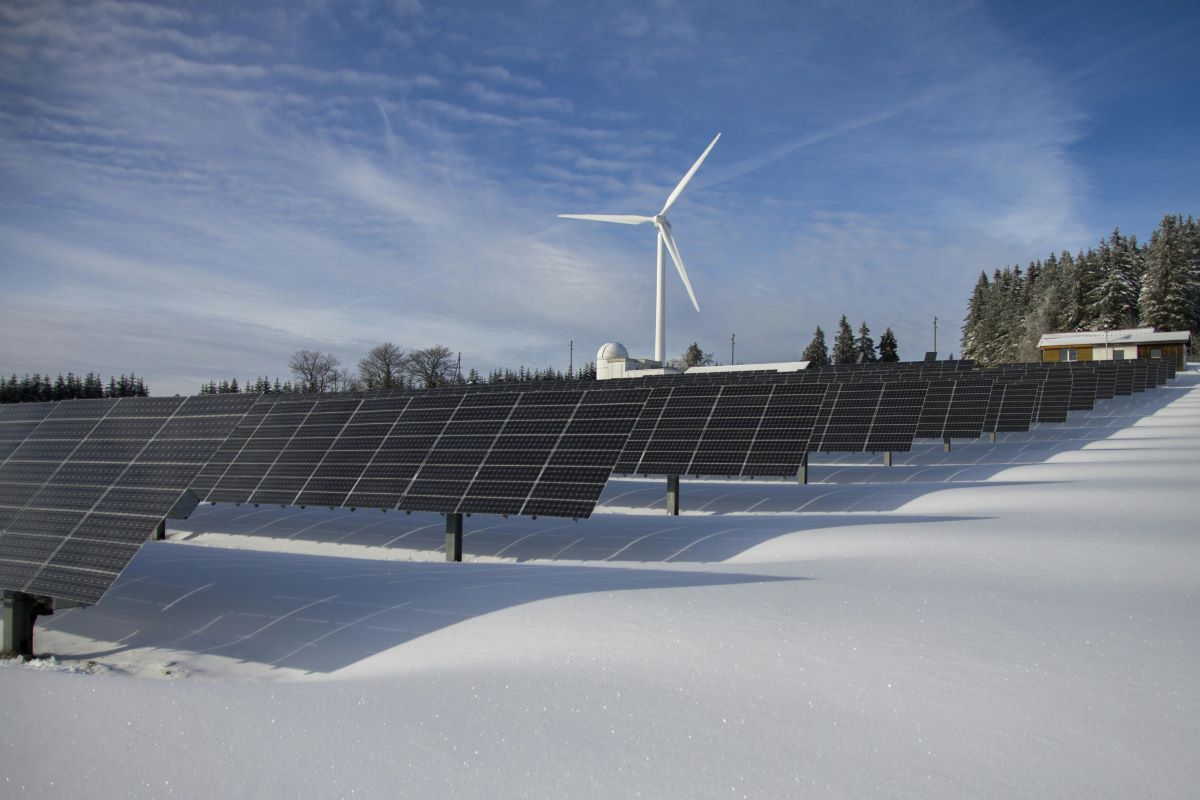Solar energy is becoming increasingly attractive as small businesses continue looking for ways to reduce costs and improve sustainability. Solar power offers financial savings and environmental benefits that can strengthen a company’s reputation.
Understanding the ROI of solar investments is essential for small business owners to determine whether solar panels are worth the initial cost.
This article explores how solar energy can generate measurable returns for small businesses, making it a future-proof investment.
How Solar Power Cuts Operational Costs for Small Businesses?

One of solar power’s most immediate and tangible benefits is its ability to reduce energy bills. Solar panels can reduce electricity costs by up to 75%, depending on a business’s location and energy consumption. This significant drop in overhead expenses allows small businesses to channel those savings into other growth areas, such as marketing or product development.
In truth, businesses with solar panels enjoy more predictable energy costs, as they are less affected by fluctuations in utility prices. This stability in operating expenses is especially beneficial for small businesses that need to maintain tight financial control. In short, lower operating costs lead to higher profitability, making solar a smart financial move for the long term.
The ROI of Solar Investments: How to Measure Financial Returns
The ROI of solar investments is one of the most critical factors for business owners to consider. ROI, or return on investment, measures the financial return generated from the initial cost of the solar system. Calculating solar ROI is relatively simple: divide the financial benefits (energy savings and potential incentives) by the total cost of the solar installation.
For example, if a small business spends $30,000 on solar panels and saves $5,000 annually on electricity, the ROI would be achieved in approximately six years. However, the payback period can often be much shorter with federal tax credits and state-specific incentives.
Business owners often start seeing returns within five to seven years. With this in mind, it’s clear that solar energy is a short-term savings opportunity and a long-term investment with increasing returns over time.
Tax Incentives and Government Subsidies That Boost ROI
One reason solar energy offers such high returns is the availability of tax credits and government subsidies. For example, the federal Investment Tax Credit (ITC) allows businesses to deduct a significant portion of their solar installation costs. The ITC offers a 30% deduction, substantially improving the overall ROI.
Many states offer additional incentives, such as rebates or grants, which further reduce the cost of solar adoption. Businesses can also take advantage of accelerated depreciation through the Modified Accelerated Cost Recovery System (MACRS), allowing them to deduct the solar system’s value faster than other assets.
In contrast, delaying the decision to go solar might mean missing out on these lucrative opportunities, which can dramatically increase the overall ROI.
The Environmental Impact: A Non-Monetary ROI for Small Business Owners
While financial returns are essential, solar energy’s environmental benefits offer another form of ROI. Installing solar panels helps reduce a business’s carbon footprint, which aligns with the growing demand for sustainable practices. Many consumers actively seek out companies that prioritize environmental responsibility, and adopting solar energy can enhance a small business’s reputation as eco-friendly.
Another key point is that a positive environmental impact can increase customer loyalty and attract new, eco-conscious clients. While these non-monetary benefits are harder to quantify, they contribute to long-term business growth and help create a brand that stands out in a competitive marketplace.
Solar as a Hedge Against Rising Energy Costs
Energy prices are projected to rise due to inflation, supply issues, and increasing demand. By investing in solar, small businesses can insulate themselves from these fluctuations. Solar energy provides a stable and renewable power source, ensuring that future energy costs remain predictable, even as utility prices increase.
Besides, many areas allow businesses to sell excess solar energy to the grid through net metering programs. That creates an additional revenue stream that further enhances the ROI of solar investments. Hence, by turning an overhead cost into an asset, small businesses can hedge against the uncertainty of future energy expenses.
Solar Financing Options: Making Solar Affordable for Small Businesses
The cost of solar panels has decreased significantly over the past decade, but the upfront investment can still be a barrier for many small businesses. Fortunately, several financing options make solar adoption more accessible. Solar leasing, power purchase agreements (PPA), and low-interest loans offer flexible ways for businesses to adopt solar without the high upfront costs.
As an illustration, leasing allows businesses to install solar panels with little to no upfront investment. While the business doesn’t own the system and receives smaller financial returns than purchasing outright, it still benefits from immediate energy savings. In contrast, purchasing the system results in higher long-term returns, especially when combined with available tax credits and incentives.
Maximizing the ROI of Solar Investments for Small Business Owners
In conclusion, the ROI of solar investments goes far beyond mere energy savings. Small businesses can see substantial financial benefits by reducing operational costs, taking advantage of tax incentives, and hedging against rising energy prices. The environmental impact of solar energy can elevate a business’s brand, making it more attractive to customers who prioritize sustainability.
In short, solar energy is a wise investment for small business owners looking to enhance profitability and secure a more sustainable future. With tax credits, financing options, and rising energy prices in mind, now is the time to consider how solar can benefit both the planet and the bottom line.
Read Also:
- 12 Ways To Generate High-Quality Solar Sales Leads
- Know-How Solar Panels Increase the Value of Your Property
- How to Start a Solar Energy Business?
Author Bio: Sarah Williams is a renewable energy advocate and sustainability strategist at EnGoPlanet, a company at the forefront of developing solar and smart city technologies, such as solar-powered streetlights, that enhance urban infrastructure. With over a decade of experience, Sarah helps businesses adopt clean energy solutions, focusing on solar investments for energy independence. Outside of her work, she writes about renewable technologies and their impact on businesses of various sizes.
















